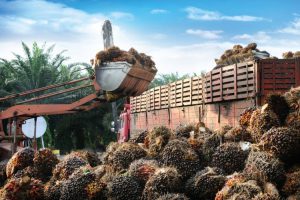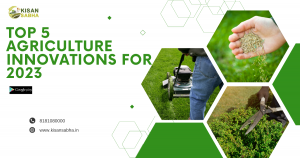
The crucial supply chain and all-important agriculture and related agri-industries and activities remained among the top focus of the new guidelines on extended lockdown issued by the government on Wednesday.
Agriculture and allied sectors in rural India have enormous employment opportunities and affect the country most, so the government reinforced stress on the supply chain and agriculture and rural sectors and related industries, including domestic trade and export, food processing, fisheries, animal husbandry, cold storage, etc.
As per the government’s directives, all agricultural and horticultural activities, such as farming operations, agencies involved in the procurement of agricultural produce, and ‘mandis’ operated by the Agriculture Produce Market Committee (APMC) will be allowed in areas that are not COVID-19 hotspots after April 20.
To provide an impetus to the rural economy, industries operating in rural areas, including food processing industries; construction of roads, irrigation projects, buildings, and industrial projects in rural areas; works under MNREGA, with priority to irrigation and water conservation works; and operation of rural Common Service Centres (CSCs) have all been allowed.
The supply chain of milk, milk products, poultry and livestock farming, and tea, coffee, and rubber plantations will resume, it said.
Officials say the Centre is actively engaged with stakeholders to address issues affecting the sector and has already announced several relaxations for the agriculture/rural sector and associated industry/business, including transportation.
The main focus is on strengthening and smoothening the supply chain and pumping up the agri-engine to make the farm/rural sector the driver to benefit stakeholders and the poor. Apart from an inter-state call center for better coordination for the movement of perishables like vegetables and fruits and agri-inputs like seeds, pesticides, and fertilizers, the government has announced a slew of measures to facilitate farmers and farming activities during the lockdown period. It has also initiated a dialogue with exporters of agri and allied commodities to address issues affecting the sector due to the lockdown, especially availability and movement of labor, inter-state transport bottlenecks, and shortage of raw materials.
Agriculture Secretary Sanjay Agarwal held a video conference to get a first-hand account of problems faced by exporters and initiate steps in which exporters, representatives of associations of producers/exporters of fruits, vegetables, basmati, and non-basmati rice, seeds, flowers, plants, organic produce, agriculture equipment, and machinery participated.
Majority of issues related to the availability and movement of labor, inter-state transport bottlenecks, shortage of raw materials due to the closure of ‘mandis’, closure of courier services thereby hampering movement of shipping documents, availability of freight services, access to ports/yards and clearance of goods for imports/exports.
Industries relating to food processing, spices, cashew nuts, and machine and equipment (M&E) sectors asked for permission to open/operate at least 25-30% strength and committed proper health advisory in functioning. Internal transport is being addressed by the Home Ministry which has issued necessary directives, said officials, adding that issues about port and ocean freight services, and courier services are also being considered for necessary resolution.
Apart from a large population being engaged in farm activities, India is also a net exporter of agricultural and allied commodities. Its agricultural and allied exports during 2018-19 were Rs 2.73 lakh crore and the sector has always been positive in balance of trade, say officials. Agricultural exports help farmers/producers/exporters to take advantage of the wider international market and increase their income.




